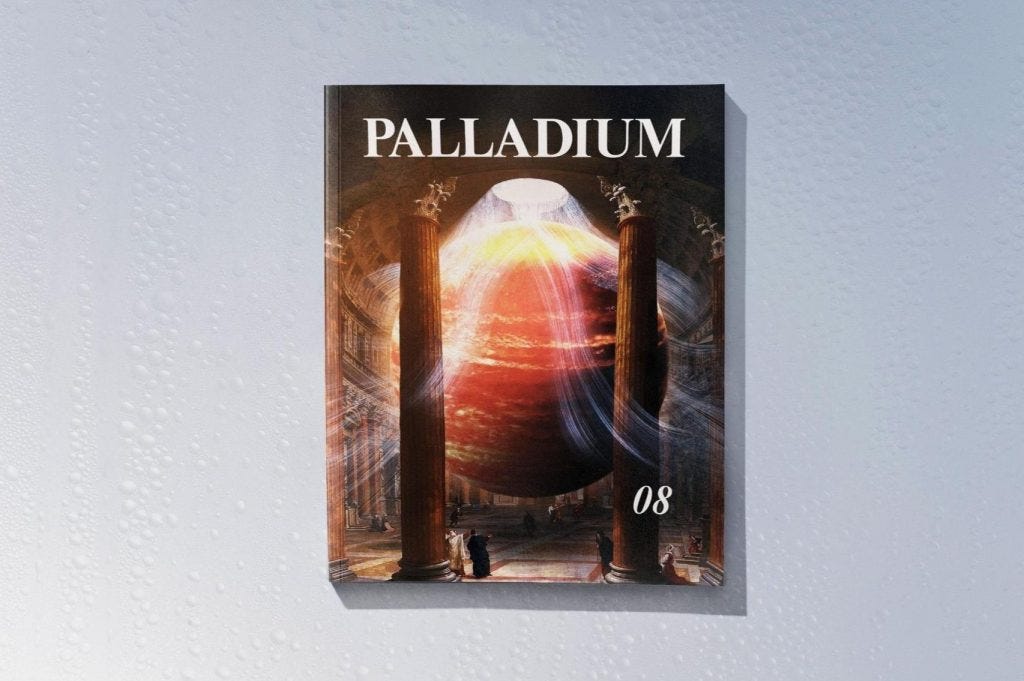PALLADIUM 08: Scientific Authority
The theme of the new print and edition and a CST event in Washington, D.C.
PALLADIUM 08: Scientific Authority is now available. It collects our best writing on society’s relationship with science today into one beautifully constructed package:
One of the most striking developments of the past two centuries is the growth of public scientific authority. On science’s behalf, its partisans have successfully claimed credit for rapid technological advances, whole fields of knowledge, and the authority to judge the credibility of beliefs.
This prestige is useful to political leaders trying to justify their decisions. But it’s not intuitive how science should have popular prestige. Scientific work mostly takes place in small communities of trained people, using language and instruments obscure to the general public. The actual work of researchers and the invocation of scientific authority are two distinct operations. Science’s role as a public ideology isn’t automatically compatible with the delicate process of scientific research, or even with the careful use of science in policy.
As we have continued our deep study of the future of governance, the problems of Scientific Authority have come to the fore as some of the most fascinating. As science has become more powerful, political forces have fed back to distort the scientific process itself. For many of us coming from technical backgrounds, our natural question was how public epistemology—and public authority—could live up to our scientific ideals. The difficulty lies in avoiding the errors of trying to turn science into a religion, or politics into a technocratic calculation.
You can learn more about the contents of 08 and how to subscribe here.
CST Launch Event in Washington D.C.
The American Governance Foundation, which publishes Palladium, is launching a new institution to provide American decision makers new resource for understanding China through high-quality, contextualized translations of Communist Party documents and intellectual essays: The Center for Strategic Translation.
A launch event for the Center is being held in Washington D.C. on January 18. The director of the Center and Palladium correspondent Tanner Greer will be moderating a discussion on “Chinese Politics As Chinese See It: What Reading China's Establishment Intellectuals Can Teach Us.” The talk will be followed by a cocktail reception.
You can find the event signup link here. You can also read about the purpose of CST in this Palladium article by our correspondent Tanner Greer.
Here’s what’s been on the front page lately:
PALLADIUM 08: Scientific Authority. As science has become more powerful, political forces have fed back to distort the scientific process itself. PALLADIUM 08: Scientific Authority is now available, featuring exclusive interviews and custom artwork.
The Institutions of Science With Lord Martin Rees. Lord Martin Rees is an astrophysicist and the current Astronomer Royal. He reflects on how science can serve society and the obstacles for those who want to follow in his footsteps.
Are Farm Antibiotics Destroying Our Health? by David Oks. When one cattle rancher’s organic herd started dying, he uncovered how antibiotics are making cows sick and obese—and they may be doing the same to us.
Political Academia With Stephen Hsu. Researching the frontiers of genomics, modeling uncertainty, and managing a university have taught Professor Steve Hsu that scientific questions aren't the only kind that scientists have to answer.
On the State of the Art With Laibach. The enigmatic Slovenian music group speaks with Samo Burja about the Apocalypse, artificial intelligence, and why Europe is still under occupation.
That’s all for now.

